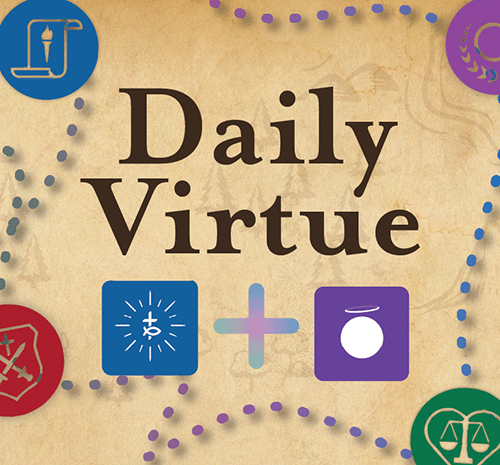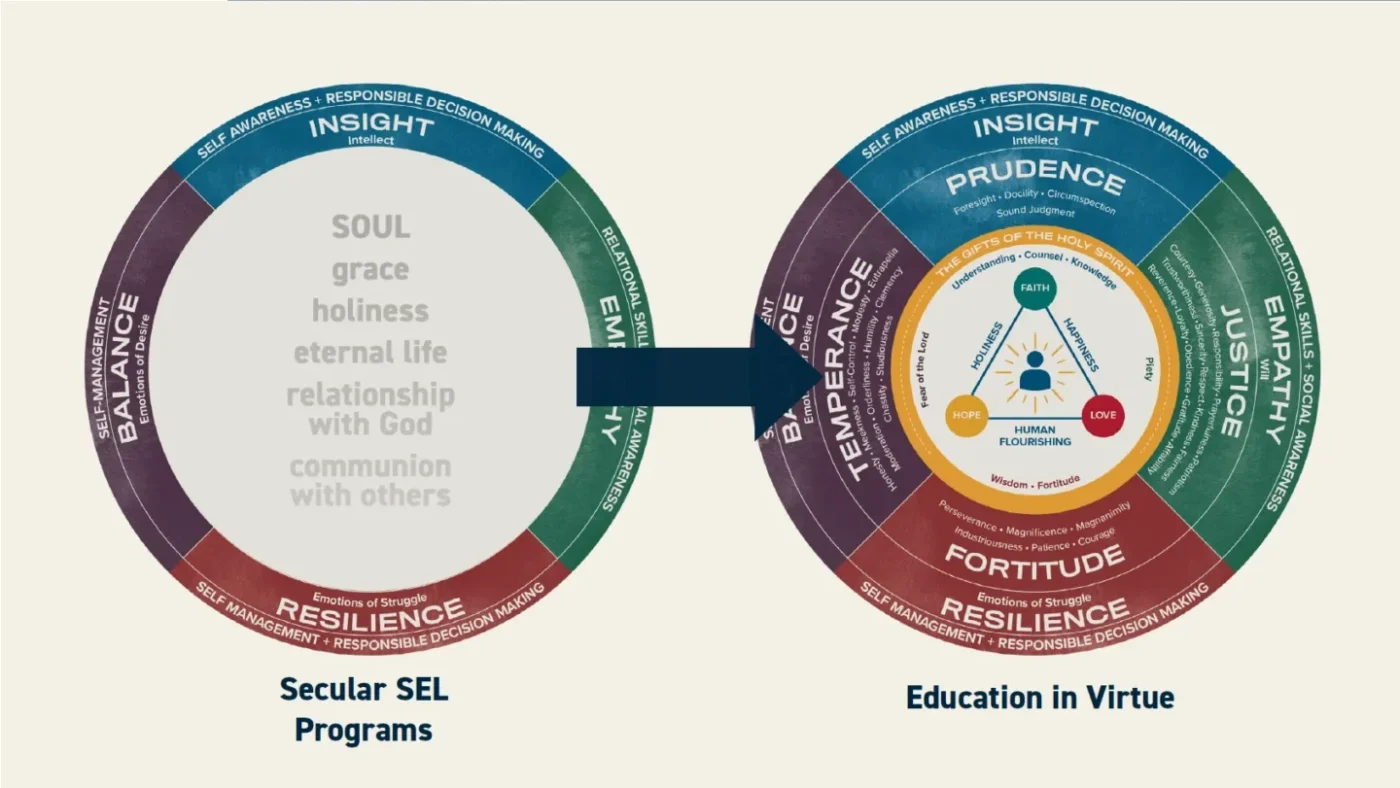About Education in Virtue
Disciple of Christ, Education in Virtue
Education in Virtue offers support as you learn, teach, and practice virtue. With time, you will begin to naturally incorporate the language of virtue within your daily life and grow as a disciple of Christ. Recent studies in interpersonal neurobiology and positive psychology support this way of life and show that an integrated way of life leads to the betterment of the human person.
When you learn, live, and witness in virtue, it will overflow into every aspect of life—transforming you into the best version of yourself. Simply put, Education in Virtue is happiness simplified.
Way of Living
Education in Virtue is more than just a program. It is a clear, organized way of living a good, meaningful life. A happy life. What is virtue? It simply means the habit of doing good. With resources for all ages, Education in Virtue has something for everyone.
Catholic Social Emotional Learning
Secular programs can’t address the spiritual dimension of social emotional learning. WE CAN.
Disciple of Christ | Education in Virtue speaks to students as created in the image and likeness of God, body and soul. It provides authentically Catholic formation, giving students the tools they need to live an integrated social-emotional life in the light of grace
How Education in Virtue Works
All Education in Virtue® materials are designed by teachers for teachers—practical, indestructible, simple, and easy-to-use. Assisting with new ideas and activities, they will guide your planning and help you integrate the language of virtue daily. Because learning virtue is a process and helps us live a happier life, we frame this education in three stages: Learn, Live, and Witness.
Stage 1: Learn
Because it is the habit of doing good, one must first know virtue in order to live it; therefore, understanding what each virtue ‘looks like’ and ‘sounds like’ is essential.
Stage 2: Live
By learning the virtues, one internalizes the characteristics of a good, integrated life and is then able to respond virtuously in all of life’s circumstances.
Stage 3: Witness
Living a virtuous life permits one to live in friendship with Christ—our fulfillment and hope. The habitus of virtue enables good acts to flow easily and the overflow of these provide one with a delight in doing the good.
Learn
Stage 1 – learn the language of virtue
Live
Stage 1-live joyfully as a disciple of Christ
Witness
Stage 3-witness to conversion and happiness
These resources will guide you through the witness stage.
Testimonials
Education in Virtue is very clear, concrete and actionable in its application to shape student and staff behavior. It’s richly rooted in Catholic teaching, while still being philosophically secular enough to implement in any scenario. Simply put, we see more and more ‘ah ha’ moments when discussing behavior. Magnanimity and humility rightly understood, for example, promote great conversation with kids.
Why does Education in Virtue work? On a practical level, it gives a community a positive common vocabulary for describing human behavior. For example, when a student learns to take into account the effects of his/her decisions on others, and then learns to call that habit “circumspection,” he/she grows in the ability to control and direct those actions.
This program has TRANSFORMED our school! Our school is only in its fifth year and after just starting this fall, I am already seeing rapid growth. We are growing everyday with Education in Virtue as our guide. THANK YOU for creating this beautiful program. Many thanks!
“It’s a reminder to all of us about how we can live a virtuous life – kind, generous and patient with each other – as we never know where people are coming from or what kind of day they’ve had. It’s teaching that our world needs faith, hope and charity.”









